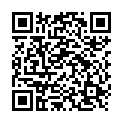|
|
|
| Module code: E505 |
|
1V+1U+1P (3 hours per week) |
|
4 |
| Semester: 5 |
| Mandatory course: yes |
Language of instruction:
German |
Assessment:
2 lab reports, written exam
[updated 11.03.2010]
|
E505 Electrical Engineering, Bachelor, ASPO 01.10.2005
, semester 5, mandatory course
|
45 class hours (= 33.75 clock hours) over a 15-week period.
The total student study time is 120 hours (equivalent to 4 ECTS credits).
There are therefore 86.25 hours available for class preparation and follow-up work and exam preparation.
|
Recommended prerequisites (modules):
E303 Electronics I
E405 Electrical Machines I
[updated 11.03.2010]
|
Recommended as prerequisite for:
|
Module coordinator:
Prof. Dr.-Ing. Stefan Winternheimer |
Lecturer:
Prof. Dr.-Ing. Stefan Winternheimer
[updated 11.03.2010]
|
Learning outcomes:
After completing this course, students will have acquired a basic understanding of electrical drive systems. They will be in a position to distinguish between different types of drive systems and will know where these drives are generally deployed.
[updated 11.03.2010]
|
Module content:
Some basic concepts from mechanics
Law of conservation of momentum, moment of inertia, influence of a speed variator, power and work, determining a machine’s moment of inertia by the deceleration test
Discussion of the equations of motion
General form of the equations of motion, steady-state load characteristics of various engines and machines, stable and unstable operating points
Heating up of electrical machines
Power loss and temperature limits, heating of a homogeneous body, operating modes
DC drives
DC voltage source excitation, AC voltage excitation, reversing drives
Three-phase drives with induction machines
Operating performance of induction machines, frequency control, voltage control, subsynchronous converter cascade
Three-phase drives with synchronous machines
Operating performance of synchronous machines, speed adjustment, starting and braking, inverter motor, electronic motor
Lab course
Three-phase bridge connection, frequency-controlled induction machine
[updated 11.03.2010]
|
Teaching methods/Media:
Lecture notes, overhead transparencies, blackboard, experimental test rigs
[updated 11.03.2010]
|
Recommended or required reading:
Seefried: Elektrische Maschinen und Antriebstechnik,
Vieweg Verlag, Braunschweig/Wiesbaden, 2001
Leonhard, Werner: Control of Electrical Drives, 2nd Edition,
Springer Verlag Berlin, Heidelberg, 1985
[updated 11.03.2010]
|


